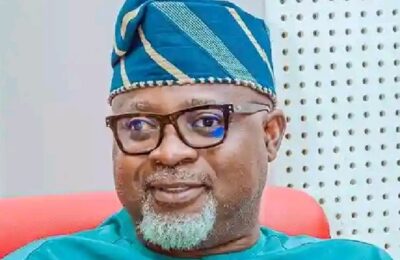In the waning embers of Kogi East’s political relevance, a haunting irony stalks the corridors of power—a tribe blessed with abundant genius, yet besieged by chronic absenteeism. The Igala nation, once the undisputed power bloc of Kogi politics and a strategic decider in Nigeria’s northern realignment, now finds itself grappling with a painful dilemma: the paralysis of leadership caused not by the absence of capacity, but by the withdrawal of capable minds. Professor Joseph Okwori of the University of Abuja lamented this irony during the Igala Renaissance Dialogue, saying, “we do not lack eagles in Igala land; we lack the courage of our eagles to soar where it matters most.”
Indeed, the corridors of global influence are lined with Igala names—diplomats in Geneva, engineers in Dubai, professors in California, surgeons in South Africa—yet their homeland bleeds from the poverty of their political presence. Their silence is not golden, it is grievous. Their distance is not tactical, it is tragic. As Professor Francis Idachaba once warned before his passing, “When the wise refuse to speak, the village drum falls into the hands of the deaf.” The drums of Kogi East politics today beat without melody. Power has slipped into the hands of men untrained in policy, unseasoned in sacrifice, and unshaped by vision.
This tragedy is made more bitter by the rise of political opportunists—men whose only qualification is access to patronage networks or tribal loyalties. The void left by the absence of Igala elites has created fertile ground for sycophants to rise, singing discordant tunes and enriching themselves at the expense of the collective. Alhaji Ali Atabor, former chairman of the NUJ in Kogi, once declared: “Our brightest minds have become analysts of problems they were born to solve. They write essays instead of manifestos; they protest online but vote with their feet.” In this vacuum, hope has been bartered for handouts, and political engagement reduced to seasonal noise without sustainable structure.
But why have the eagles hidden in the rocks? Why has brilliance cowered behind PhDs and diplomatic immunity while their homeland slips into economic irrelevance? Perhaps it is disillusionment. Perhaps it is fear. Or perhaps it is the dangerous comfort that comes with global success while one’s ancestral soil withers. Yet, the words of Isaiah 58:12 speak pointedly to this generation of elites: “Your people will rebuild the ancient ruins and will raise up the age-old foundations; you will be called Repairer of Broken Walls, Restorer of Streets with Dwellings.” The call is not for commentary, but for confrontation—for presence, for participation, for rebuilding.
Let the eagles stop hiding in foreign embassies, university halls, and private luxury. Let them return—not just for Christmas celebrations, burials or cultural exhibitions, but for governance, unity, and progress. The land needs their vision, their networks, their administrative discipline. The youth of Kogi East are crying, not just for empowerment, but for direction. Let the eagles soar from the rocks and mountains—both home and abroad—and circle the skies of Igala land, stirring the winds of love, unity, and justice. Then, and only then, shall Okura State cease to be a sleeping dog and become the birthing of a roaring new beginning.
Okura State is not a tribal agitation; it is a historical restoration. It is not a consolation prize, but a constitutional right grounded in decades of demographic strength, cultural unity, and economic potential. Yet, without the deliberate availability of our brightest minds—lawyers, technocrats, policy strategists, and international lobbyists—Okura State will remain a dream deferred. As Dr. Paul Ameh once declared during a political symposium in Anyigba , “States are not granted by emotions; they are won by strategy, unity, and relentless advocacy.” And this advocacy must be driven by men who understand the corridors of power and are willing to walk them on behalf of their people.
In all of this, one cannot forget the ancestral wisdom of our forebears: “A man who owns the hoe but waits for another to till his field is inviting hunger.” Igala has the hoe—its scholars, its diaspora, its vast youth—but continues to lease its destiny to outsiders and political gamblers. The moment has come for collective repentance. The moment has come for a shift from brilliance in exile to stewardship at home. Let our eagles descend with policy papers, constituency blueprints, strategic alliances, and the fire of revival in their bones.
Until then, the land mourns. It mourns not just the loss of power, but the absence of its sentinels. It mourns not just poverty, but betrayal. It mourns not just neglect by outsiders, but abdication by insiders. But there is still time. The wind is rising. The bones can still live. The eagles can yet return. For as Ezekiel heard in the valley of dry bones, “Son of man, can these bones live?” Yes, they can—if only the gifted will return from hiding, and the capable will arise from slumber. Let it be said, that from the ashes of absenteeism, Igala rose again—not by the noise of the street, but by the return of her wise men from the rocks.
– Inah Boniface Ocholi writes from Ayah – Igalamela/Odolu LGA, Kogi state.
08152094428 (SMS Only)




